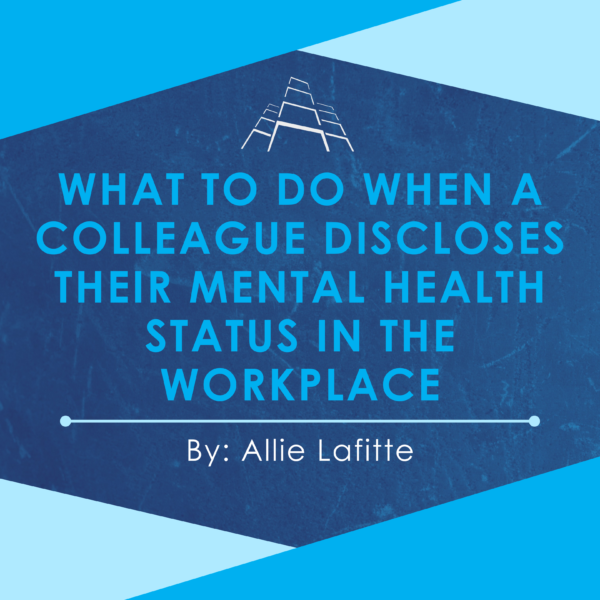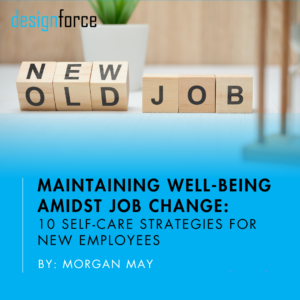When an employee discloses their mental health condition, it can be challenging to know how best to handle the situation, especially if this is the first time you find yourself in this seat.
Mental health is not an easy topic to discuss – in any context – let alone at work. While gradually diminishing the stigma around mental health with increased discourse and awareness, it is still a factor people consider in deciding whether or not they feel comfortable sharing their story. When a colleague chooses to come to you, know this disclosure decision is complex and indicates an immense amount of trust. Therefore, it is crucial to understand how to best navigate these conversations.
As World Mental Health Day approaches on October 10th, we wanted to focus on the importance of one’s mental health and navigating a coworker or direct report disclosing their mental health condition. While a conversation like this can be intimidating, it is essential to consider a few important factors.
Acknowledge
Begin by understanding the effort it took for the employee to tell you. If nothing else comes of the initial conversation, be sure to thank them for trusting you and starting the discussion. The response must be consistent with your relationship with the colleague. Be careful not to change your relationship with this person based on one conversation. If you were close before, maintain that relationship; if not, now is not the time to pretend.
Listen
It is important to take what the other person is saying in – fully actively listen without interruption or prejudice. Give the person space to express their intended message. It is important to remember that verbal cues are only one part of the active listening equation; your nonverbal communication and body language are just as important. Showing anxiety by shuffling in your seat, avoiding eye contact, or crossing your arms can discourage the employee or colleague. A relaxed posture with uncrossed arms is a more inviting way to communicate nonverbally. Questions will naturally arise in the conversation; it is important to avoid additional questions that require the employee to disclose more information. Avoid asking them to reveal the kind of mental illness they are experiencing or how long they have had it. Allow them to lead the conversation as much as possible.
Avoid Assumptions
It can be tempting in this situation to explain that you will do whatever you can to support them, but it’s important to tread lightly here. It’s vital not to make assumptions about the type of support they need. They could be informing you as an FYI and not at all asking for support. In other cases, they may be asking for that support. What’s important is to not assume before fully understanding the situation. If they ask for specific support, like changes to their work schedule, or time off, don’t overpromise; instead, let them know you will work to see what support you can provide.
Make Yourself “Tell-Able”
In an ideal world, if you are in a situation where you need support or help from your manager, you can go to them and have that conversation – whether it be about a project, your career progression, or a personal matter. On the manager side of the conversation, the important piece is to foster an open atmosphere where your employees feel comfortable approaching you about serious matters like their mental health. By focusing on approachability and open communication, you can help make these conversations less scary. Approachability does not require one to break down their walls and disclose one’s trials and tribulations by any means. However, having personal discussions regarding topics beyond the confines of the professional world does go a long way in reminding your employees that you are there as a resource, not just for their work needs.
Setting the standard that you are an approachable resource in the workplace will yield stronger relationships with those around you. Understanding how to navigate these conversations will be critical as we continue to destigmatize the conversation around mental health.

Related Posts
Let's learn together.
Stay inspired and in the know on all things A|E|C.
Sign up for our monthly newsletter.










